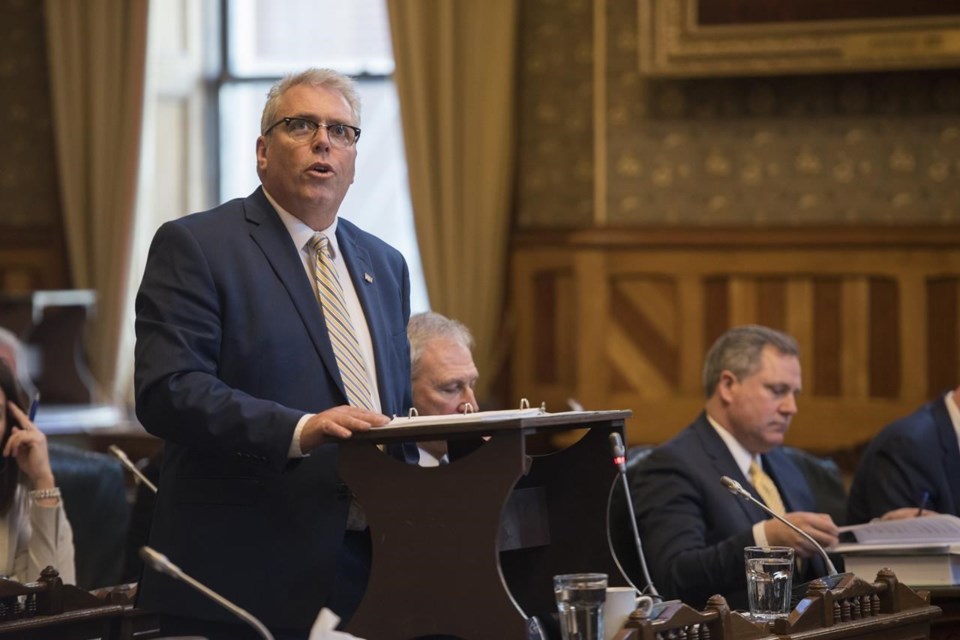FREDERICTON — New Brunswick’s budget surplus continues to swell and is now projected at $774.4 million for the 2022-23 fiscal year, an increase of $739.2 million over the figure forecast in the province’s March budget.
The latest forecast, presented Thursday, is $638.9 million more than what was projected in the Progressive Conservative government’s August fiscal update.
Crediting population growth, Finance Minister Ernie Steeves says the province will collect revenue this fiscal year that is $918 million higher than what was projected in the budget.
“Our second-quarter results show we are reaping the benefits of record population growth in the province,” Steeves told reporters.
New Brunswick’s population grew by 9,200 people between April and July for the “highest growth since Confederation,” he said. As of July 1, the province’s population reached a record 812,061.
That growth has resulted in higher revenue from corporate and personal income tax and the harmonized sales tax, Steeves said. That revenue includes an increase of $388.3 million in corporate income tax and $317 million in personal income tax.
Meanwhile, government spending is estimated to rise by $179 million compared to what was projected in March's budget. Steeves said the money will go toward health care, post-secondary education, social development and infrastructure.
The province is also forgoing about $13 million in revenue for the current fiscal year as a result of personal income tax cuts ‚Äî legislation for which is currently before the legislature ‚Äî ¬Ýthat are scheduled to take effect Jan. 1.
Steeves, however, warned that the expected slowdown in the global economy will likely stymie the province's recent economic growth and create a “high degree” of fiscal uncertainty.
Finance officials provided figures from the International Monetary Fund indicating that global economic activity is expected to slow to 3.2 per cent this year from six per cent in 2021 because of elevated inflation, tightening financial conditions in most regions, Russia’s invasion of Ukraine and the lingering effects of the COVID-19 pandemic.
“Inflation and rising interest rates are expected to slow economic activity with many signs pointing to a recession hitting Canada in the coming months,” Steeves said. “But our recent economic progress puts us in a better position to weather a downturn.”
Steeves said ‚Äúbalanced‚Äù decisions will have to be made regarding spending, tax cuts and debt reduction. The minister said if the surplus is used up, it will be because it‚Äôs ‚Äúwell used."¬Ý
He promised, “I will not take us into deficit.”
The province projected a net debt of $11.7 billion — a reduction of $661.7 million year-over-year that will cut $25 million on debt-servicing interest payments.
This report by The Canadian Press was first published Nov. 10, 2022.
The Canadian Press




